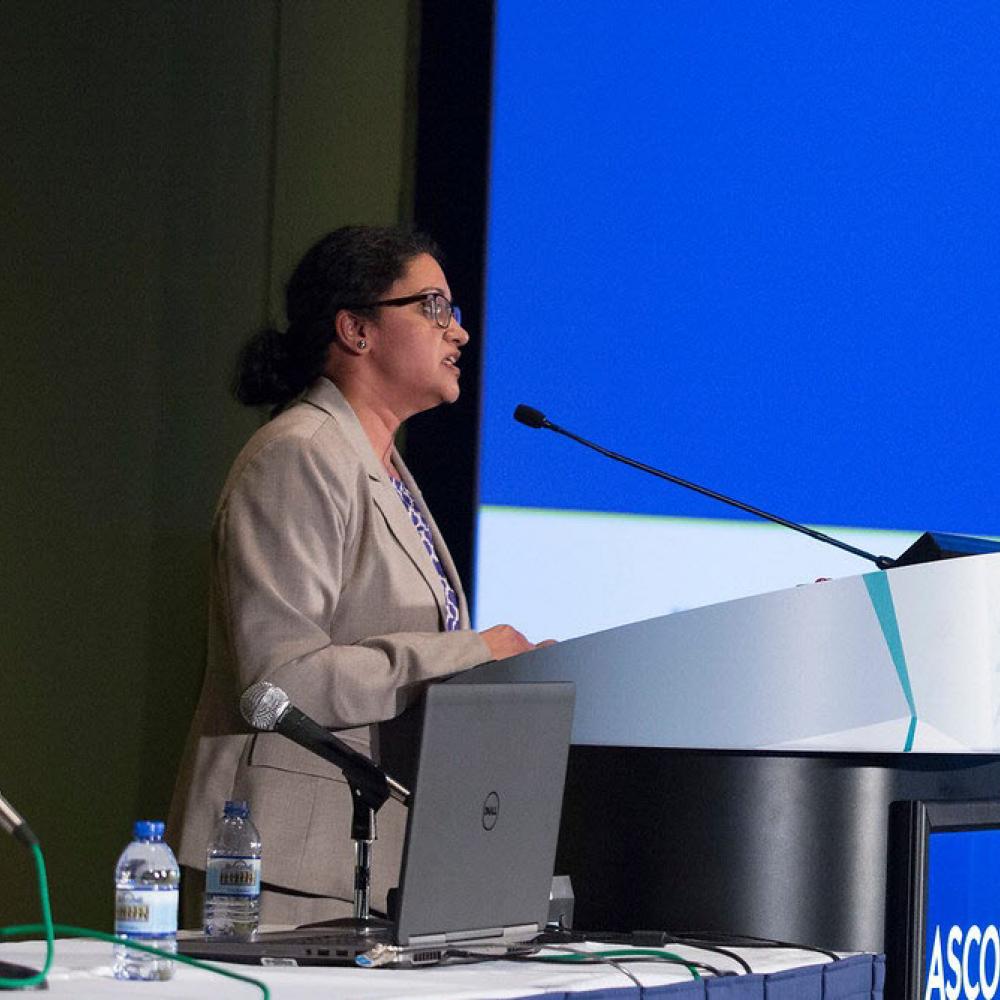These researchers have dedicated their careers to finding new treatments and cures for people with cancer.
Geriatric Cancer Is a New but Critical Field
Older adults are the population most affected by cancer. According to Cancer.Net, 60% of people who have cancer are 65 or older. Yet the field of oncology that focuses on older adults, geriatric oncology, is still relatively new. Geriatric oncology encompasses older adults who have additional health issues – like chronic conditions or disabilities – that make their cancers more difficult to treat.
Dr. Mohile was one of the first people to complete training in geriatric oncology. Today, she is an Associate Professor of Medicine and the Director of the Geriatric Oncology Clinic at the University of Rochester Medical Center.
“At a time when geriatric oncology was not well understood, my award gave me the strength and courage to enter a field where there weren’t a lot of mentors or programs, and to do something different from most of my peers,” explains Dr. Mohile.
How New Tools Are Helping Older People with Cancer
Thanks to funding provided by Conquer Cancer donors, Dr. Mohile and her team explore different tools for evaluating older oncology patients with additional medical issues. Specifically, they compared a longer, more involved tool, the geriatric assessment, with another more concise tool, the Vulnerable Elders Survey. Ultimately, they found that the Vulnerable Elders Survey worked well to assess patients for chronic conditions and disabilities.
This study helped lay the foundation for the trials Dr. Mohile is supervising today, both of which may improve care and outcomes for older adults with cancer.
“We want to be able to provide safe and efficacious treatment to older patients, but the risk-benefit ratio may be a lot smaller, and may weigh more toward risk,” says Dr. Mohile. “We’re still trying to determine how to make decisions effectively and identify which patients will benefit, and which will be harmed.”
“Our role in geriatric oncology is to help more oncologists learn about the issues that are important to older adults and their caregivers,” explains Dr. Mohile. “There are not a lot of people that do what we do, and yet it’s such a huge clinical issue that everyone in oncology faces: How do you make the best decisions for patients who, due to their underlying health conditions, may have a higher risk than patients who were included in the original clinical trials?
